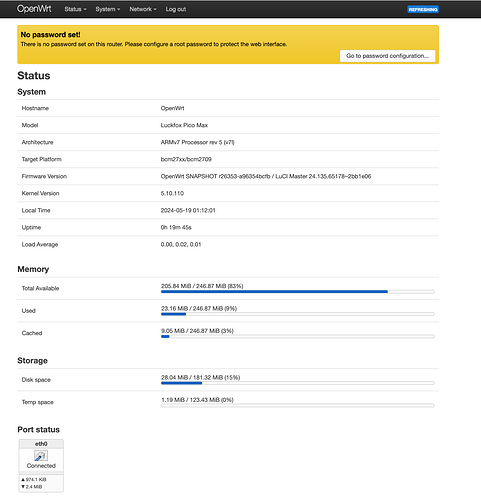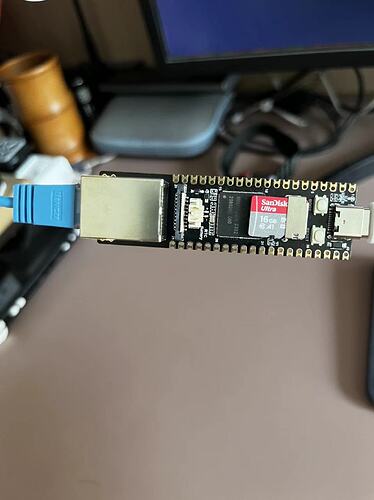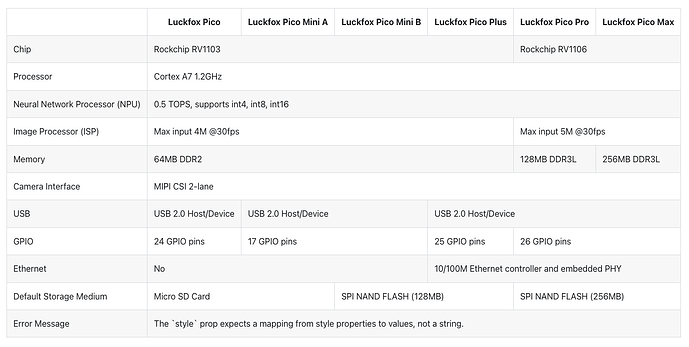Introduction
LuckFox Pico 、Luckfox Pico Mini A/B and LuckFox Pico Plus are low-cost micro Linux development boards based on the Rockchip RV1103 chip, while LuckFox Pico Pro and LuckFox Pico Max are low-cost micro Linux development boards based on the Rockchip RV1106 chip. RV1103/RV1106 is a highly integrated IPC visual processing SoC designed for AI-related applications. It is built on a single-core ARM Cortex-A7 32-bit core with integrated NEON and FPU, and features a built-in NPU that supports INT4/INT8/INT16 mixed operations, with a computing power of up to 0.5 TOPs.
Furthermore, it features a new hardware-based ISP that supports various algorithm accelerators such as HDR, 3A, LSC, 3DNR, 2DNR, sharpening, haze removal, gamma correction, and more. Additionally, it has a built-in 16-bit DDR2 DRAM to maintain demanding memory bandwidth, as well as built-in POR, audio codec, and MAC PHY. In essence, the RV1103 is a powerful processor suitable for various AI application scenarios.
This development board is suitable for applications in various scenarios, including but not limited to:
- Smart home devices
- Industrial automation equipment
- Robots and drones
- Intelligent monitoring devices
- Intelligent transportation equipment
- Smart medical devices
The development board supports multiple interfaces, including GPIO, UART, SPI, I2C, USB, etc., facilitating rapid development and debugging for developers.It's worth noting that the entire LuckFox Pico series development boards support both buildroot and Ubuntu 22.04 systems, allowing developers to choose the appropriate system based on project requirements, providing greater flexibility to meet specific application needs.
Product Parameters
Ref:
https://downloads.openwrt.org/snapshots/targets/bcm27xx/bcm2709/
https://openwrt.org/toh/raspberry_pi_foundation/raspberry_pi
https://techinfodepot.shoutwiki.com/wiki/RPF_Raspberry_Pi_series



